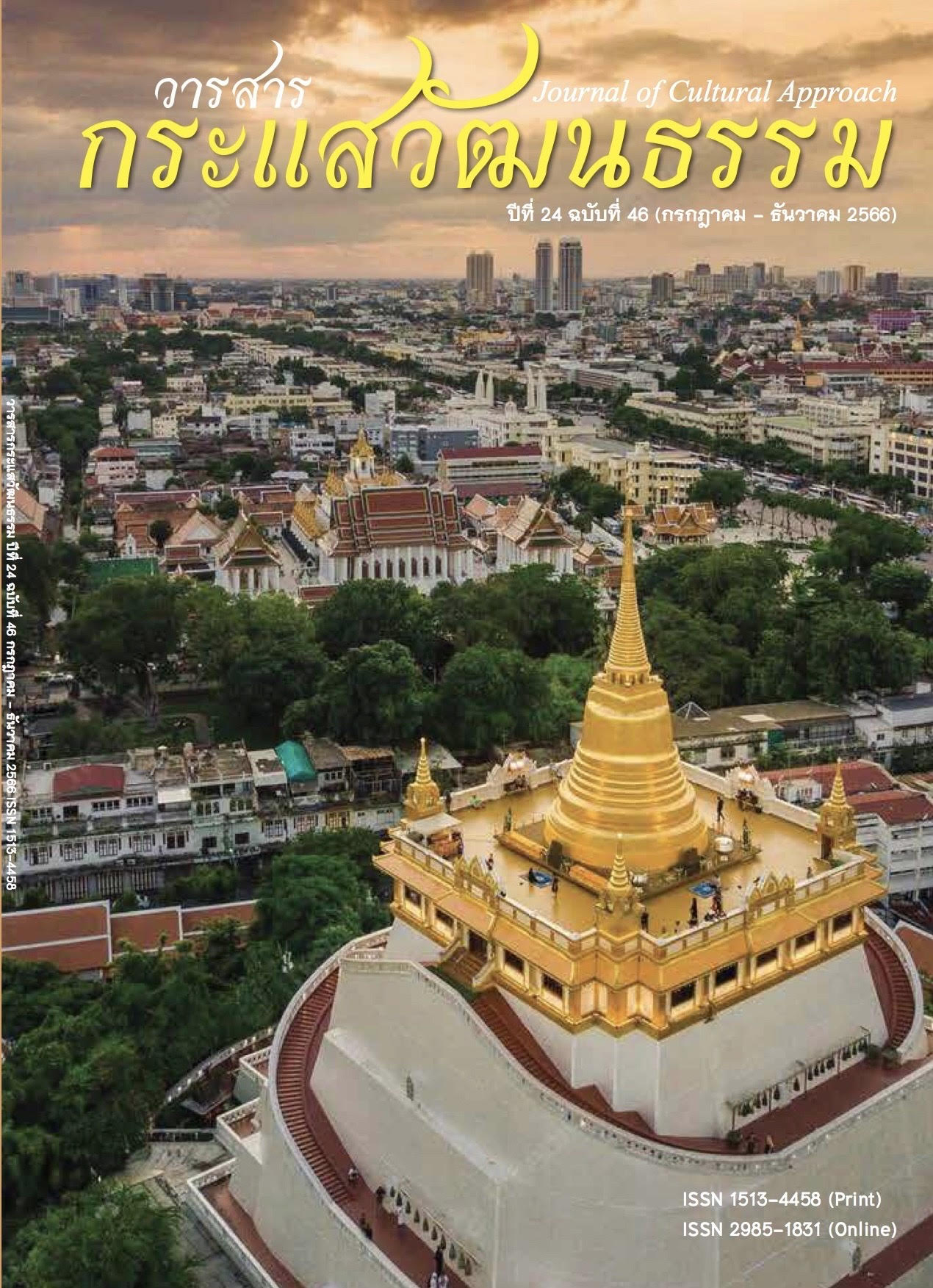Human Rights Threats from the Tourism and Service Sector
Main Article Content
Abstract
The tourism and service sector is a large industrial sector that is involved in many sectors, whether public or private, that must coordinate and work together to achieve efficiency and good results as a whole. The influx of tourists will surely positively affect the economy, causing the tourism and service industry entrepreneurs to have increased revenues. There was growth in the economy, which was considered a huge income per country. At the same time, business competition arose in which entrepreneurs competed for dominance and wanted to gain market share as a monopoly. This causes human rights threats to tourists, both directly and indirectly. Both knowing and not knowing are all causes of a negative image of the tourism and hospitality industries because they cause tourists to worry, fear, suspicion, and feel insecure about their bodies and property. All of these things have not been mentioned or encouraged to create ways to prevent and protect tourists as they should be. Most of them will be fixed at the end of the cause. Without studying and getting to know the problem in depth, find a concrete way to prevent and solve it.
This article, therefore, focuses on human rights threats from the tourism and service sectors that are the main causes of the negative attitude of tourists. It focuses mainly on situations where service providers interact directly with tourists in the purchase of goods and services. To be a guideline for prevention and to be developed as a concrete form of regulation in the future.
Article Details

This work is licensed under a Creative Commons Attribution-NonCommercial-NoDerivatives 4.0 International License.
Proposed Creative Commons Copyright Notices
1. Proposed Policy for Journals That Offer Open Access
Authors who publish with this journal agree to the following terms:
- Authors retain copyright and grant the journal right of first publication with the work simultaneously licensed under a Creative Commons Attribution License that allows others to share the work with an acknowledgement of the work's authorship and initial publication in this journal.
- Authors are able to enter into separate, additional contractual arrangements for the non-exclusive distribution of the journal's published version of the work (e.g., post it to an institutional repository or publish it in a book), with an acknowledgement of its initial publication in this journal.
- Authors are permitted and encouraged to post their work online (e.g., in institutional repositories or on their website) prior to and during the submission process, as it can lead to productive exchanges, as well as earlier and greater citation of published work (See The Effect of Open Access).
Proposed Policy for Journals That Offer Delayed Open Access
Authors who publish with this journal agree to the following terms:
- Authors retain copyright and grant the journal right of first publication, with the work [SPECIFY PERIOD OF TIME] after publication simultaneously licensed under a Creative Commons Attribution License that allows others to share the work with an acknowledgement of the work's authorship and initial publication in this journal.
- Authors are able to enter into separate, additional contractual arrangements for the non-exclusive distribution of the journal's published version of the work (e.g., post it to an institutional repository or publish it in a book), with an acknowledgement of its initial publication in this journal.
- Authors are permitted and encouraged to post their work online (e.g., in institutional repositories or on their website) prior to and during the submission process, as it can lead to productive exchanges, as well as earlier and greater citation of published work (See The Effect of Open Access).
References
Allianz Travel. (2022). Common Tourist Scams and How to Avoid Them. https://allianz-assistance.co.th/travel/common-tourist-scams-and-how-to-avoid-them/
Amnesty International Thailand (AIT). (2020). Human Rights Work. https://www.amnesty.or.th/our-work/
Assmus, G., Farley, J. U. & Lehmann, D. R. (1984). How Advertising Affects Sales: Meta–Analysis of Econometric Results. Journal of Marketing Research, 21(1), 65–74.
Ch7HD News. (2021). Prosecute those who Forcefully Sell Flowers, Incense Sticks and Candles in Front of Temples in Nakhon Phanom Province. https://news.ch7.com/detail/474519
Cheawsilp, P. (1983). Psychoanalytic Theory Handbooks. Sahaprachapanich Press.
Dissayawanich, J. (1979). Psychiatry. Prasingkanpim Press.
Khaophuket. (2019). Hunting for the Criminal who Forced a Slow Loris to Take Pictures with Tourists at Kata and Karon Beaches. https://t.ly/COoMl
Kosananan, J. (2016). Human Rights without Frontiers: Philosophy, Law and Social Reality. National Assembly Library of Thailand.
Kotler, P. (2000). Marketing Management: Analyzing Consumer Marketing and Buyer Behavior (The Millennium). Prentice–Hall.
MGR Online. (2023). Disgrace! Travelers Post about Encountering Vendors Taking Advantage at Chiang Khan. https://mgronline.com/local/detail/9660000087575
Ministry of Tourism and Sports (MOTS). Tourism Safety Measures. https://www.parliament.go.th/ewtadmin/ewt/parliament_parcy/ewt_dl_link.php?nid=56340&filename=index
Nation TV. (2023). Photographer Pesters Tourists at Petronas Twin Towers. https://www.nationtv.tv/foreign/378928338
Panyarak, B. (2019). Safety Image, Perception of Safety Management and Loyalty of Chinese Free and Independent Travelers in Bangkok. National Institute of Development Administration.
PPTV Online. (2021). Revealing the Pattaya Hawker Gang Prostrate to the Feet – Forcing Tourists to Buy. https://t.ly/DT1UR
Sasse, C. R. (1978). Person to Person. Benefit.
Schneider, D. J. (1976). Social Psychology. Addison–Wesley.
Schutz, A. (1955). Correspondence with Adolph Lowe. Beinecke Rare Book and Manuscript Library, Yale University, General Manuscripts 129, Box 27, Folder 664.
Srisen, P. (2001). Expectations of Service Recipients on Service Quality in Outpatient Work Siriraj Hospital: Faculty of Medicine Siriraj Hospital, Mahidol University. International Affairs for Research Section.


